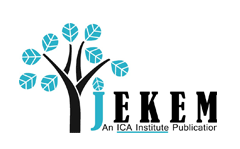Abstract
The United States mainstream populace has been notably deficient in its exposure, sensitivity and understanding relative to cultures, languages and people it considers different, whether within or outside its national borders. This general deficiency extends to the professional realm, and includes U.S. teachers, who, as adults and as a group, engage with students in a long-term, planned, structural and developmental manner that exceeds by far that of any other adult group. Teachers, therefore, have a critical responsibility with respect to accumulating and effectively expressing knowledge, skills and dispositions that will inform whom, what and how they teach in their classrooms, across the panoply of courses offered throughout the preK-12 curriculum. This requirement imperative is especially salient as student diversity continues its accelerated trajectory to become the norm in U.S. schools. Thus, future teachers must be comprehensively prepared to work with the increasingly diverse student population through application of informed instruction that enhances general and individual student learning and outcomes. Teacher Education programs increasingly promote student teaching in international settings as a substantive step in serving to develop teachers who embody these new competencies and instructional practices. This paper presentation offers a framework and analysis highlighting similarities and differences among three student teaching abroad settings, Belize, Mexico and China, associated with a state university in the southeastern United States. Findings relate to cultural, professional and character development influences on participating student teachers and the overall development patterns associated with the particular country contexts, singly and comparatively.
DOI
10.7885/1946-651X.1012
